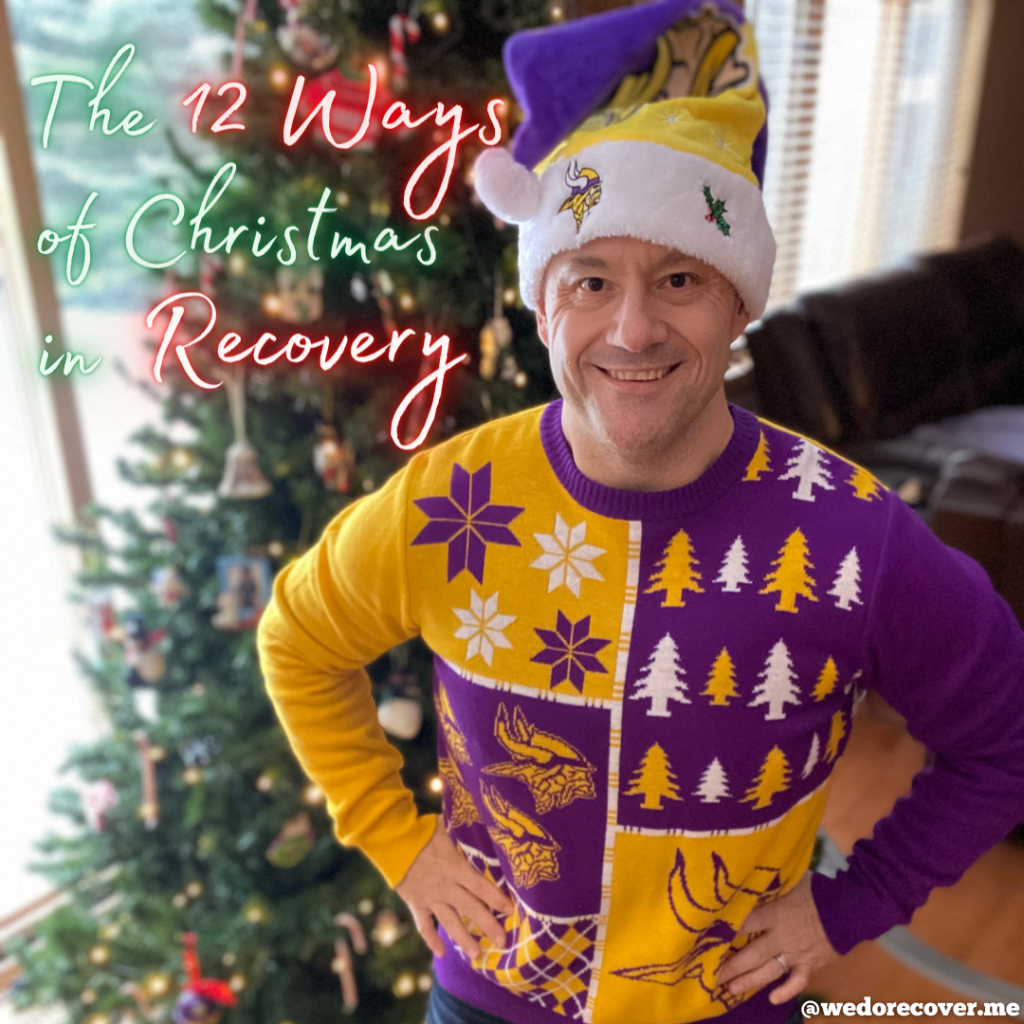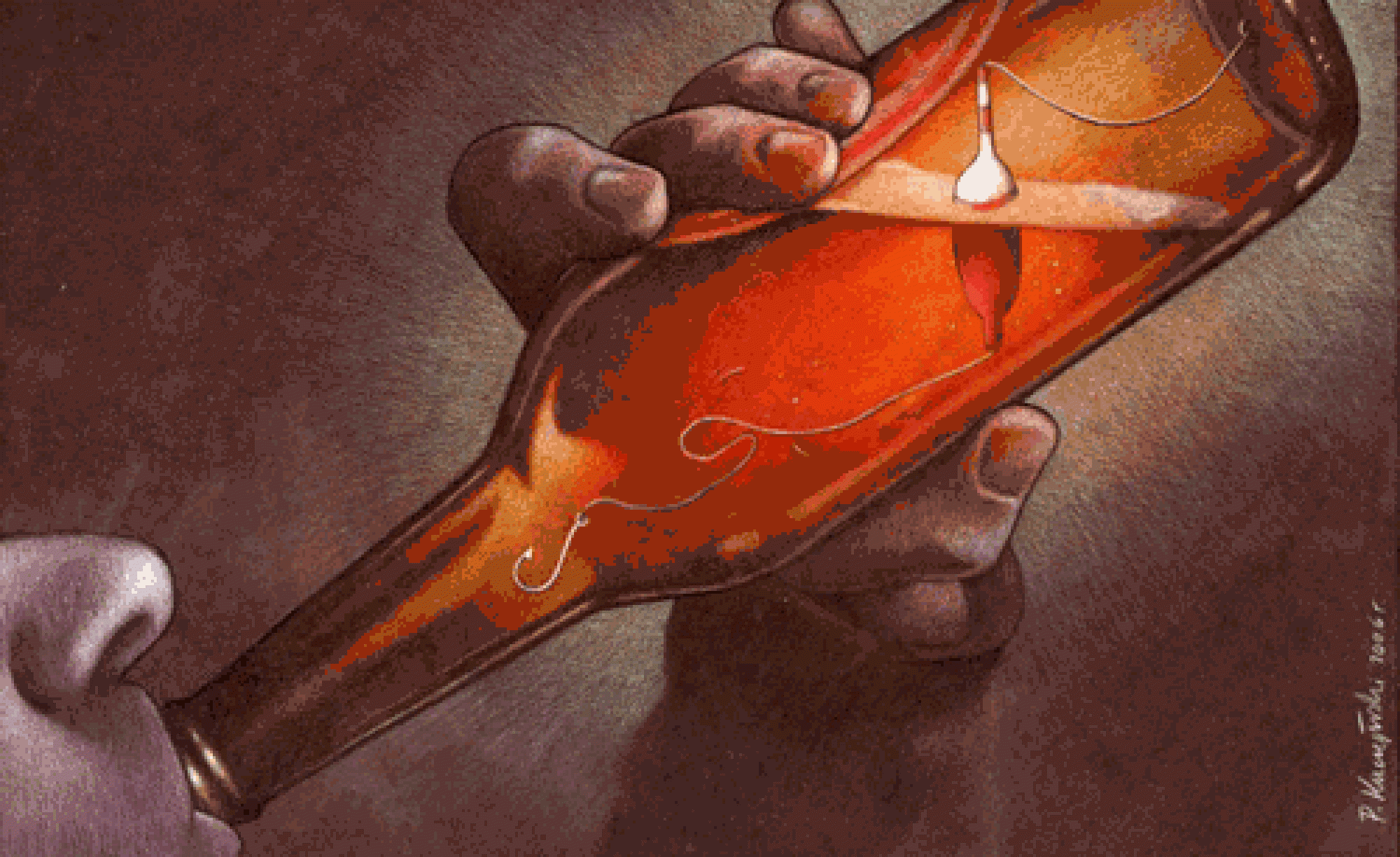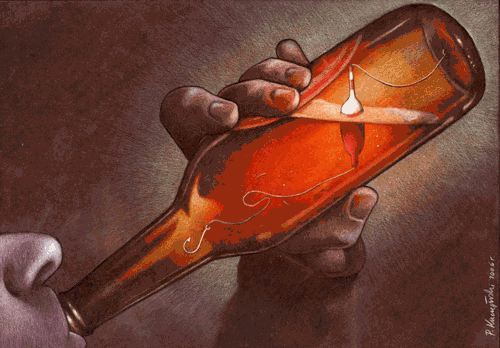I was as lost as I could be with no idea how I got where I was. This is not how my life was supposed to go. I had overcome so much, accomplished many things and yet I was here on the floor of my apartment, hallucinating after a night of alcohol and drug use… Where did I go wrong? When did it start?
I had my first drink and drunk at the age of 11. For me alcohol was an immediate love. I didn’t know it at the time but I was empty inside and alcohol filled that void. This was not my parents fault. Perhaps I was born with a genetic predisposition to alcohol and mental illness but I came from two of the greatest parents possible. I had a great childhood. My parents were very active in my life and I genuinely enjoyed being with them. They provided me with stable, secure and a happy household. We went on vacations, went camping, and had great family get-togethers. They bought us nice school clothes, nice gifts for birthdays and Christmas. I was blessed with an upbringing many kids only dream of… Then I met alcohol. Soon after my first drink I was drinking alcohol at least weekly with friends and the stages of addiction were in full gear. At first it was just a few beers, stolen from my best friend’s dad’s fridge. Then we increased the amount we drank and the frequency. We then found a “buyer” to purchase our own beer so that we could drink more without getting caught. By the time I was a sophomore I was no longer “socially drinking” I was abusing alcohol and experiencing frequent blackouts and well on my way to being chemically dependent. During my junior year my drinking climbed to embarrassing and dangerous levels with blackouts happening nearly every weekend while my tolerance was similar to a 40 year-old alcoholic. That memorial weekend in 1990 my life changed in a way that I would never recover from. My father, a firefighter collapsed and died while fighting a fire. I cannot even begin to say how devastated I was. My father meant everything to me. He was adamantly against ANY underage drinking and was unaware of my use and never knew I wouldn’t always have him in my life. I had always taken for granted that they would always be there. To say he was a pillar in our community is an understatement. He was a volunteer firefighter, a youth football, basketball and baseball coach, Cub Scout cub master, and active with many other organizations. The population of Deer River in 1990 was 907. There were over 1,000 at his funeral. I was in such deep mourning I didn’t drink for almost 6 months. However, when I returned to drinking I did so to make up for lost time. I drank every night and all weekend and had more than one ride in the back of a police car…
It is safe to say that school was not easy for me and alcohol made it harder. I was the one who always got the lowest grades, was least likely to succeed and was often the butt of many jokes by teachers and classmates in my high school. I once overheard a teacher telling a classmate of mine at a senior class meeting that someday they will come back to town and I would be pumping their gas. I believed them. I can’t blame them. I didn’t give them any reason to think otherwise. Nearing high school graduation I fully believed my classmates and teachers and didn’t have much hope for my life. Plus, I had learned that my dad had an unknown genetic heart defect and it was very likely genetic. So I quite honestly didn’t think I would live that long anyways. However, one day I decided that I was going to go to a local community college and prove everyone wrong. In college I fought two uphill battles at the same time. Being under-educated and unprepared for college and being drunk 90% of the time. College was NOT easy for me. Since I drank alcohol and neglected school throughout my junior and senior high years I was substantially behind the majority of college students. After my first year of college I had more tragedy in my life; my life long best friend and drinking buddy died. The night it happened we had a great evening of drinking planned. I had to work while Brad and Barry were going to get our alcohol for the evening. They had started drinking and were headed to town when Brad lost control of his car and went in the ditch. This would not have been a bad collision. However, Brad was not wearing his seat belt. He was thrown from his car and it landed on him. He died shortly later while being airlifted to a trauma center.
I was devastated. He and I were supposed to grow old together. We had a whole life already planned out. This also happened two years after my dad’s passing which reopened that grief. My life had changed again. I now lived scared. I went most of my young life living carefree. Now within those two years, two of the most important people in my life were removed from me.
Unlike my dad’s passing, after Brad died I drank more; substantially more. My grades in college plummeted and I was nearly kicked out permanently due to bad grades. I was at a cross roads… Then I got a DUI one evening with BAC of .37. When I woke up the next morning in detox I realized I could be dead and would be if I didn’t stop. This incident scared me straight (for a while). After I stopped drinking college became much easier. Graduation actually seemed plausible! I also met the woman I would marry and have my daughter with. We got married the summer before my senior year. We got pregnant soon after and were expecting our baby the next summer. During my senior year I was doing my student teaching when I noticed some strange palpitations in my heart. Due to my family history I went to the doctor. After many tests I learned that I had a genetic heart condition; the same heart defect that killed my father. There was some urgency, I was quickly admitted to the Mayo Clinic in Rochester. The day I was supposed to receive my Bachelor’s degree from Mankato State I was on a hospital bed having surgery on my heart. I had a defibrillator implanted in my chest to help prevent the sudden cardiac death that killed my father. I was grateful for this but scared to death.
However, I did it! I received a Bachelor’s Degree! I did what most said couldn’t be done. I attained a 4 year degree in education. As hard as it was, as much as much as alcohol tried to kill me, I persevered; I accomplished a huge milestone… Then like it does so often alcohol came calling again…
After graduating college, getting married, having a daughter, buying a house and starting a career my life crumbled. It didn’t happen right away, my career was flourishing, I was a respected member of my community, served on boards and committees, coached youth sports was active with my daughter and her school. This is what I expected my life to look like; but then my marriage fell apart and I found myself going through the process of divorce. This was devastating. Not so much because of my separation from my wife (our life had become toxic) but the separation from my daughter. My daughter was my life and being away from her was the most painful thing I went through. I felt like I couldn’t breathe, was always in a state of anxiety, so I went back to what I always did when I felt empty; alcohol. A mixture of alcohol and prescription drugs (both opioids and benzodiazepines) consumed my life. I wasn’t feeling hurt, because I couldn’t feel. I was in a state of constant blackouts.
This is where I found myself on the floor of my apartment after another night of alcohol and drug use. I was trying to kill myself. I didn’t want to die, but I could not stand the pain any longer. Death seemed like it would be easier than sobriety. As many addicts and alcoholics know, in active addiction sobriety can seem utterly impossible. I couldn’t see the light at the end of the tunnel, because instead of light I could only see my daughter living elsewhere. I felt empty, alone and destroyed. I lost my place in this world and felt I could not find my way home.
Then I heard it. “DARREN, this is not who you are supposed to be” This was my dad’s voice. I am as sure of it today as I was then. I have never had an encounter with a spirit previously and have not since, but I know this was his voice. I don’t know how, I am not a paranormal guy or have any concrete beliefs about the supernatural, but this happened. The interesting part is (other than conscious memories) this was the first time I heard my dad’s voice since he died. Every dream I have had with my dad since he passed away he has been silent. It’s like my brain knew he was gone.
I cried. Not from shame and not for sadness. It was a cry of surrender and acceptance of where I was and the spontaneous courage to face my demons. As low as I was, I felt serenity. The wisdom of what I need to do to change my life was there. It was there all along. I just didn’t know how to find it.
This is why the song The House That Built Me by Miranda Lambert is special to me. She sings “I thought if I could touch this place or feel it, this brokenness inside me might start healing…” For me instead of a place it was a voice. The healing did not happen overnight but it started that day on the floor.
I had already been to treatment, I had learned the 12 steps I just wasn’t ready to surrender and say I cannot do this alone. Through my program of recovery I finally started to learn gratitude. In the past I never felt grateful, I always felt like a victim. I did have a lot of adversity and tragedy, but I also failed to look at the beauty in my life… I leaned how lucky I am. Many, many alcoholics and addicts don’t get a second chance. None of us are guaranteed a second chance, let alone three or four chances. I could very easily be dead or permanently incarcerated due to my use. I started to look at life with gratitude and today I am very grateful; grateful for my life, health, sobriety, and my family.
Most of my life I ignored my mental and chemical health, and even after getting help, I got complacent and neglected my therapy. This could have been fatal, but luckily I got help. I am incredibly thankful for this second chance in life. It has given me a renewed energy to share my experiences, strength and hope. I know I still have a lifelong journey in recovery but I am happy where I am in my recovery. I also know from my past that I cannot get complacent in my ways. But if I practice everything I have learned from the recovery community I will be fine. For me, recovery is a process of change where I constantly try to improve my health and wellness, live a self-directed life, and strive to reach my full potential. It’s more than just meetings and/or abstaining; it’s living a life to its fullest. I am happy where I am in life and incredibly grateful for my program of recovery.
View Miranda Lambert’s The House That Built Me video here





